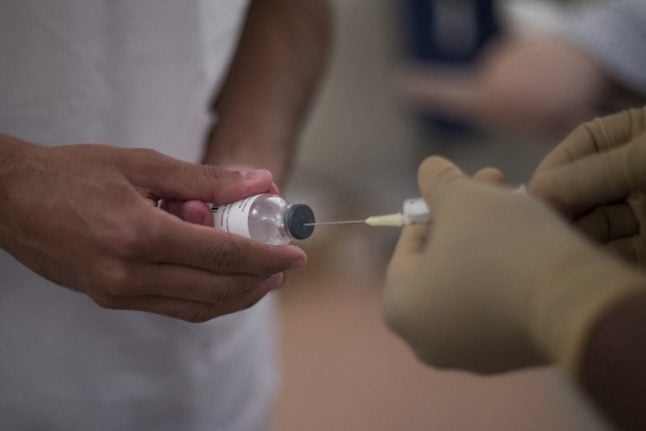HEALTH
Child killed by malaria in Italy caught disease in hospital
A four-year-old girl who died of malaria in Italy in September caught the deadly disease in hospital, the health ministry said on Saturday, ruling out the possibility she was bitten by an infected mosquito.
Published: 4 November 2017 14:05 CET

Test results indicate that the disease was likely passed to the child by human error, such as a reused needle. File photo: FRED DUFOUR / AFP
Sofia Zago, who had not travelled to any at-risk countries, fell ill after a stay in a hospital in the northern city of Trento that was treating a family that had contracted malaria during a trip to Burkina Faso.
“We can categorically rule out the malaria having been caught outside the hospital,” Health Minister Beatrice Lorenzin said on the sidelines of a G7 health summit in Milan.
The Santa Chiara hospital insisted it only uses disposable, single-use needles, leading experts to wonder whether the child could have contracted the disease via a mosquito bite on the Italian coast where she holidayed.
Malaria was rife in Italy in the 19th century but eradicated by 1962, and the idea it may be reappearing — and in the colder parts of the country no less — had spooked Italians.
Tests results now show, however, that both the family and Sofia were affected by the same strain, meaning the disease was likely passed from the family to the child by human error — such as a reused needle.
“This seems a comfort, because it means we don't have malaria-carrying mosquitoes,” Lorenzin said in a reference to some types of the insect, called anopheline, that are able to transmit the disease from person to person.
While there are cases of mosquitoes from malaria-endemic countries making it to Europe alive in the body of an aircraft, or items of luggage, investigators ruled out the possibility one made it into the hospital along with the family.
With global climate change, the potential for the reappearance of malaria in countries where it was previously eradicated exists, but is relatively small.
According to the World Health Organization, there were 212 million cases of malaria worldwide in 2015, and 429,000 deaths. Ninety percent of malaria case and deaths occur in Africa, with children under five most at risk.
Url copied to clipboard!


 Please whitelist us to continue reading.
Please whitelist us to continue reading.